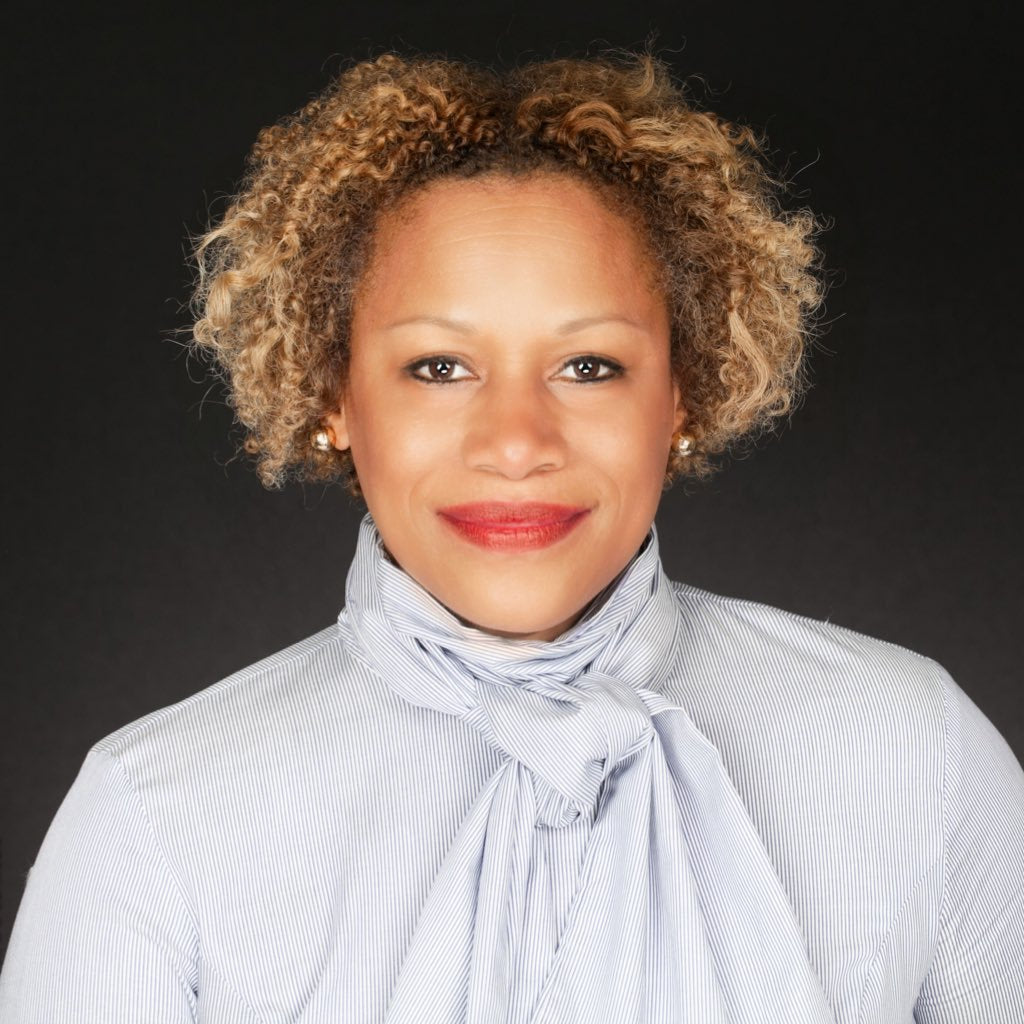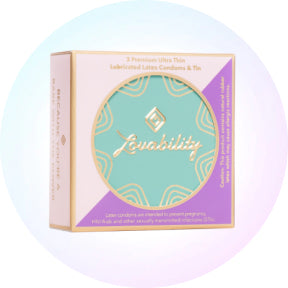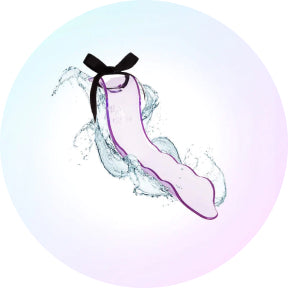Babe With The Power — Vida Samuel

Power Babe Interview | with Dr. Vida Samuel of the University of Connecticut
I’m thrilled to introduce this month’s Power Babe, Dr. Vida Samuel. When I was asked the question during one of my interviews – “Who is a woman you look up to?” – Vida’s beautiful face pop into my head.
Vida is Assistant Professor in Residence in the Department of Human Development at the University of Connecticut’s Stamford campus. She’s a women’s studies and intercultural communication scholar whose research focuses on the sexual lives of women at midlife.
I recently had the honor of guest-speaking in one of her classes at UConn, and walking through the halls with her felt like I was accompanying a beloved rock star. She is a woman who has devoted her life to the pursuit of knowledge and is dedicated to bettering the lives of women near and far.
You teach your class “Issues in Human Sexuality”. How would you define Human Sexuality in today’s world? Has it changed?
That is a critical series of questions which get to the heart of contemporary human sexuality. The discipline is both inclusive and intersectional today.
To explain this, let me reference the middle of the last century, prior to feminist movements, when we discussed human sexuality in a biological sense as either gender or sex – they were the same thing – or sexual behavior, not both. The topic was essentialist in its description and the way in which it was treated. For example, men had minimum reproductive responsibilities while women were burdened by all sexual labor. Women had to think of pregnancy, pregnancy prevention and social implications of having sex regardless of marital status. Men and women had specific gender roles and therefore imposed sexual functions.
In my class, human sexuality necessarily takes on a different tenor. It is impossible to make sexual labor discretely gendered or solely based on behavior and decisions. It is ultimately the examination of both biology and erotic impulse rooted in culture, race, ethnicity, religion, ability, sexual orientation, age, health, socioeconomic status and anything that might influence how human sexuality is understood.
Any Misconceptions in Human Sexuality?
A common misconception in my classroom is when self-identified women suggest assuming behaviors traditionally prescribed to heterosexual men – indifference, dispassion and sexual animalism – liberates women from stigma and dogmatic ideologies of women as “sluts.”
I invariably ask the question, ‘are we complicit in our own diminishment and are we relinquishing our uniqueness just to say we can do it like a man?’ I disagree with that approach. Women are not a different version of men, we are women. There is no comparison to be made, period.
What are some of the biggest issues today regarding human sexuality and women’s rights?
Don’t get me started. I believe over time, generations have come to believe that the hard-earned rights conferred upon us by historic women’s movements have no real relevance for them.
The accomplishments of civil rights have little application for them beyond women’s month and Black History month because they were born into a society where everyone appears to have equal rights based on gender, ability and religion, for example.
They attend integrated schools and everyone can have a mobile device. They have little idea of how we got here and to whom we owe this enormous debt.
Reproductive rights and voting rights are treated as settled and reconciled and forever available to us. Not so.
I am a transnational and understand well that I am a beneficiary of the work of Shirley Chisolm, Gloria Steinem, Betty Friedan, Angela Davis, Hilary Clinton, Marge Piercy and Audre Lorde and every woman who gave up some part of their lives in exchange for commitment to freedoms I enjoy, well before I came to this country.
I understand the right of women to vote, the right to choose to terminate or keep a pregnancy, the right to marry or not marry, the ability to apply for credit and the privilege of holding a driver’s license as quantifiable details that were not an absolute for women once upon a time.
The Equal Rights Amendment is still in a state of purgatory in sixteen states in the US and conservatives insist on re-litigating Roe v Wade in states that are anxious to see women in a state of political paralysis because “the personal is political.”
In fact, everything we do in the name of feminism and civil rights associated with it requires maintenance. Like everything else, women’s rights need attention to ensure an enduring survival. And these are just the issues that keep me up at night.
The point I want to highlight is that women’s issues are never resolved. We keep having to fight to be acknowledged as equal human beings to men and some women who insist our existence should not be an equitable one. A peculiar chronic practice of gendered colonization.

What does Feminism mean to you?
I am consistent with my response that I am an unapologetic, über feminist.
Feminism to me is conceding that oppression based on gender exists and as a society we have a fundamental responsibility to call it out and work to lessen its effects on everyone.
Gender oppression does not only impact the immediately oppressed human but also everyone in that person’s orbit. The oppression of women also extends to any group that oppressors feel are consistent with characteristics of women.
Think of the phrases “runs like a girl” or “plays with dolls.” Those descriptions are not often positive associations. It is not okay to use behavior connected with women as a form of insult to women and others. It is maddening.
My generation’s brand of feminism isn’t reactionary but practical and concrete. We had the advantage of the baby boomers’ fights to get us to this place. Feminism as a negligible symbol, reflects our collective neglect of, and amnesia about its achievements.
We stopped thinking about feminism as something that is incomplete for women. Feminism is not just wearing what we want to or the right to act or speak “like a man” or defining ourselves in relation to men.
If you had a magic wand, what would you like to see changed for women?
A female US president, equal pay for equal work for women, and a critical awareness for all girls and women that we must still work toward a just and equitable world for ourselves. Our lives and civil rights depend on our engagement.
What does being a Babe With The Power mean to you?
Power conferred by other women is real and collaborative power and the mark of competence. It is not a site of arbitrary oppression but one of a collective meant to be shared. As an educator, I hope my students will surpass my scholarship, and I use my influence to guide them to that place. Intellectuality and knowledge are currency for women.
What are some of your favorite feminist books, songs, podcasts and influencers as we focus on Women's History Month?
I must say that I do not follow any social media “influencers” but I think we follow social media and influencers because we are hopeful about the world in which we live. That said, I will recommend two in each category because this list can get very long.
Read anything by Chimimanda Ngozi Adichie but especially, We Should all be Feminists and Simone deBeauvoir’s The Second Sex, written in 1949 still has resonance for today because it argued that man is considered the default, while woman is considered the “Other:” so humanity is male and man defines woman not as herself but as relative to him. It is impactful as an historical text.
Listen to Sara Tavares’ Balance – she is a powerful and soulful musician and singer. Even if you do not understand Portuguese, the power is in one’s individual interpretation of her music. And, listen to Alanis Morrisette’s Jagged Little Pill and see the Broadway show by the same name.
I have some interest in this so I recommend listening to the LiveGirl podcasts. The organization invests in young girls from middle school to high school by creating a collaborative space for all girls. The organization’s mission is to empower and equip the next generation of brave, inclusive leaders.
I am not sure if Krista Tippett considers herself a feminist but I listen to her “On Being” programs and podcasts. The program challenges me to constantly reexamine my moral compass and intellectual capacity for thought diversity.
Dr. Vida Samuel is an Assistant Professor in Residence in the Department of Human Development and Family Sciences at the University of Connecticut’s Stamford campus. Prior to teaching and researching at UConn, she earned a Masters of Arts in speech and interpersonal communication from New York University, then went on to earn a PhD with a focus in intercultural communication and women’s studies at Howard University. Through her work since, she has served on panels that have sparked conversations surrounding feminism, and has edited books exploring Black culture (and this is all in addition to her teaching and research!) More recently, Vida serves on the board of LiveGirl, is on the scholarship evaluation committee for the Mandela-Washington Fellows program and, as an academic mentor for the annual Jackie Robinson Foundation Mentoring and Leadership Conference.
About The Author
Inventor of The WaterSlyde, a revolutionary, patented feminine hygiene device / stimulator, and co-owner of Lovability, Maureen Pollack believes in removing the stigma surrounding sexual health and personal hygiene. She is also an intimacy coach, helping empower women in all stages of life to embrace intimacy through coaching and lifestyle products. A book and feature film about Maureen’s journey as a “mompreneur” are currently in pre-production.









